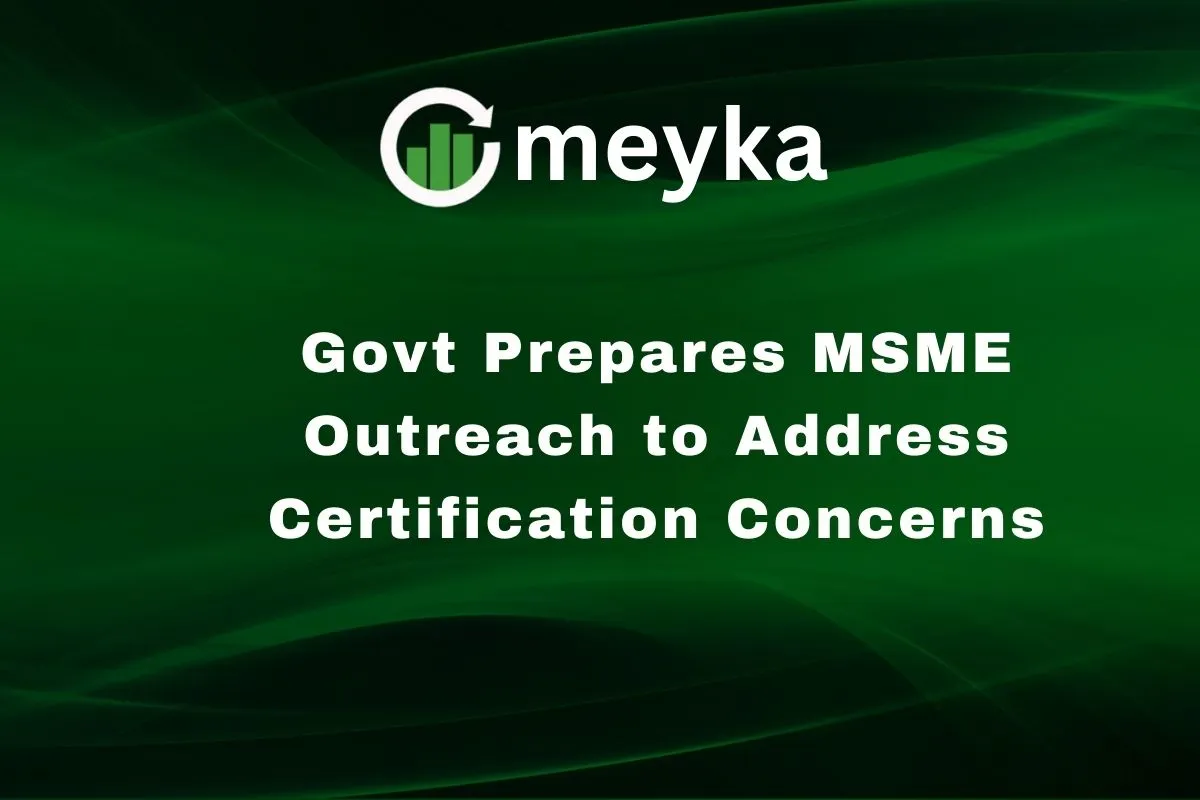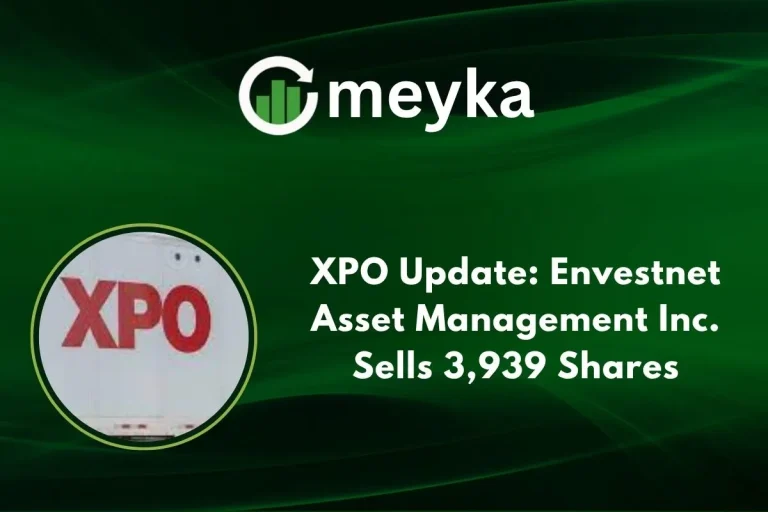Govt Prepares MSME Outreach to Address Certification Concerns
MSMEs make up a huge part of India’s economy. Millions of small and medium businesses produce goods, employ people, and supply both local and global markets. But many of them face big roadblocks when it comes to meeting rules around certification. These rules are meant to ensure product safety, quality, and compliance. But for MSMEs, they often become costly, confusing, or hard to follow.
The government has noticed. Recently, it has begun planning special outreach efforts to understand and ease certification concerns among MSMEs. We from various sectors are asking: How will this help? What changes are coming? We explore what certification means, what MSMEs are struggling with, what the new outreach includes, and what must be done to make it work.
The Importance of Certification for MSMEs
Certification is like a stamp of trust. When MSMEs have certificates, such as BIS (Bureau of Indian Standards) marks or other quality control orders, it tells buyers that products are safe and meet standards. Abroad, many markets won’t even allow entry without certification. Even inside India, consumers expect it.
These certificates help MSMEs win contracts, get better prices, and expand exports. They also reduce risk: fewer product returns, less trouble with regulators, and more confidence from clients. In a world where quality matters, certifications open doors.
Current Certification Challenges Faced by MSMEs
But certifications are not always easy. MSMEs often face:
- High costs: certification, testing, lab fees, and audits all cost money. Many small units find these expensive.
- Complex procedures and paperwork: rules aren’t always clear. Different departments, differing norms, multiple steps.
- Lack of awareness: Many MSMEs do not know which certifications apply to their product or which standards they must follow.
- Technology and digital gaps: Many processes have moved online. Suddenly, digital literacy, reliable internet, and access to technology have become essential, but many MSMEs lag here.
- Regulatory overload: A report by TeamLease RegTech found that manufacturing MSMEs deal with over 1,450 regulatory obligations a year, including many sets of paperwork, registers, inspectors, and even heavy penalties for small violations.
These roadblocks reduce MSMEs’ trust in the system. Sometimes they feel the costs outweigh the benefits.
Government’s MSME Outreach Program: Key Highlights
To ease these burdens, the government is rolling out several measures:
- Engagement with MSMEs on Quality Control Orders (QCOs): The Department of Consumer Affairs (DoCA) and BIS are increasing meetings, regional conferences to hear MSME concerns about QCOs.
- Faster and simplified BIS certification: For over 750 products, BIS now offers a simplified procedure. MSMEs can get certifications under this in about 30 days.
- Digital tools & transparency: BIS has digitised much of the certification process. Also, initiatives like “Manak Manthan” and weekly “Jan Sunwai” allow MSMEs to ask questions directly and get help on compliance issues.
- Fee concessions: Marking fees are reduced heavily: 80% off for micro units, 50% off for small units, and 20% off for medium units. This helps cost-sensitive enterprises.
- Use of cluster test labs, shared labs: MSMEs no longer always need in-house labs. They can use a recognized or empanelled lab, or shared facilities in clusters. This saves cost and infrastructure.
These key steps show that the government is trying to make certification more accessible. We are seeing both policy changes and support systems.
Expected Benefits of the Outreach
If the outreach is well done, MSMEs stand to gain:
- Lower certification costs and less paperwork mean more MSMEs can afford and apply for certificates.
- Faster access to global markets. With certificates in hand, MSMEs can export more easily and compete internationally.
- Better consumer trust. Products with recognised standards are accepted more readily in both domestic and export markets.
- Innovation and sustainability: Many quality standards now include environmental or safety norms. Meeting these can push MSMEs to improve processes.
- Reduced risk of non-compliance fines or bans. If rules are clear and help is available, MSMEs avoid legal or regulatory trouble.
Voices from the MSME Sector
Let’s hear what MSME owners and experts say:
- Some MSME leaders say that in states like Punjab, the ZED (Zero Defect Zero Effect) certification scheme has not delivered promised benefits. Audits are weak, consultants are scarce, and incentives are not always honored.
- Others say that many useful schemes or benefits exist on paper, but awareness is low. They don’t know about simplified BIS certification or about fee reduction.
- In rural areas, MSME owners often say that local offices (like District Industries Centres) are understaffed or too far, so they can’t get support easily.
These voices underline that the outreach must reach the ground.
Challenges Ahead for the Government
The government’s plan has promise. But there are hurdles:
- Implementation must be consistent across all states. Some states are better equipped than others in staff, infrastructure, and tech.
- Local support matters: Without trained personnel in districts, outreach can fail. The example of DICs (District Industries Centres) with vacant positions shows this.
- Avoid bureaucracy: Even simplified norms can be slowed by red tape. Monitoring and accountability will be important.
- Digital divide: Many MSMEs, especially in remote/rural areas, struggle with internet, computers, or skills. They may be left behind if the outreach is too tech-centric.
- Trust and credibility: If certifications (like ZED) are seen as just formalities without real audits, MSMEs may stop trusting them.
Way Forward: Policy Recommendations
To make the outreach effective, we suggest:
- Strengthen public-private partnerships: collaboration with industry bodies, NGOs, and certification agencies to train and guide MSMEs at the local level.
- Simplify procedures further: One-window clearances, standardised forms, clear timelines.
- Use vernacular and local language in training, guidance, and digital portals to reach those who may not be fluent in English or Hindi.
- Build shared labs and infrastructure in MSME clusters so cost and access are shared.
- Monitor and evaluate: Collect feedback regularly; fix lapses in schemes; ensure locals know about subsidies and reduced fees.
- Increase local consultant availability: Approve and train more quality assessors in every state to reduce dependency on outside experts.
Conclusion
MSMEs hold great promise. They are engines of jobs, innovation, and growth. But without proper certifications, many remain blocked from scaling up or entering big markets. The government’s new outreach to address certification concerns is a positive step.
We need to ensure this outreach is real, inclusive, clear, and helpful. When we make certification easier and fair, MSMEs gain. The country gains. It can lead to better quality products, more exports, and stronger trust in MSME goods. We watch with hope and expect the changes to be felt at the workshop, shop, and cluster levels soon.
FAQS:
The MSME Innovative Scheme helps small businesses grow. It supports new ideas, design, and incubation. It also guides MSMEs with technology and funds to improve products and services.
MSMEs create jobs for millions of people. They add about 30% to India’s GDP and almost half of its exports. They support local communities and strengthen the national economy.
MSMEs face high costs, a lack of funds, and limited access to technology. They struggle with complex rules, certification issues, low awareness, and poor infrastructure in small towns.
Disclaimer:
This content is for informational purposes only and is not financial advice. Always conduct your research.






